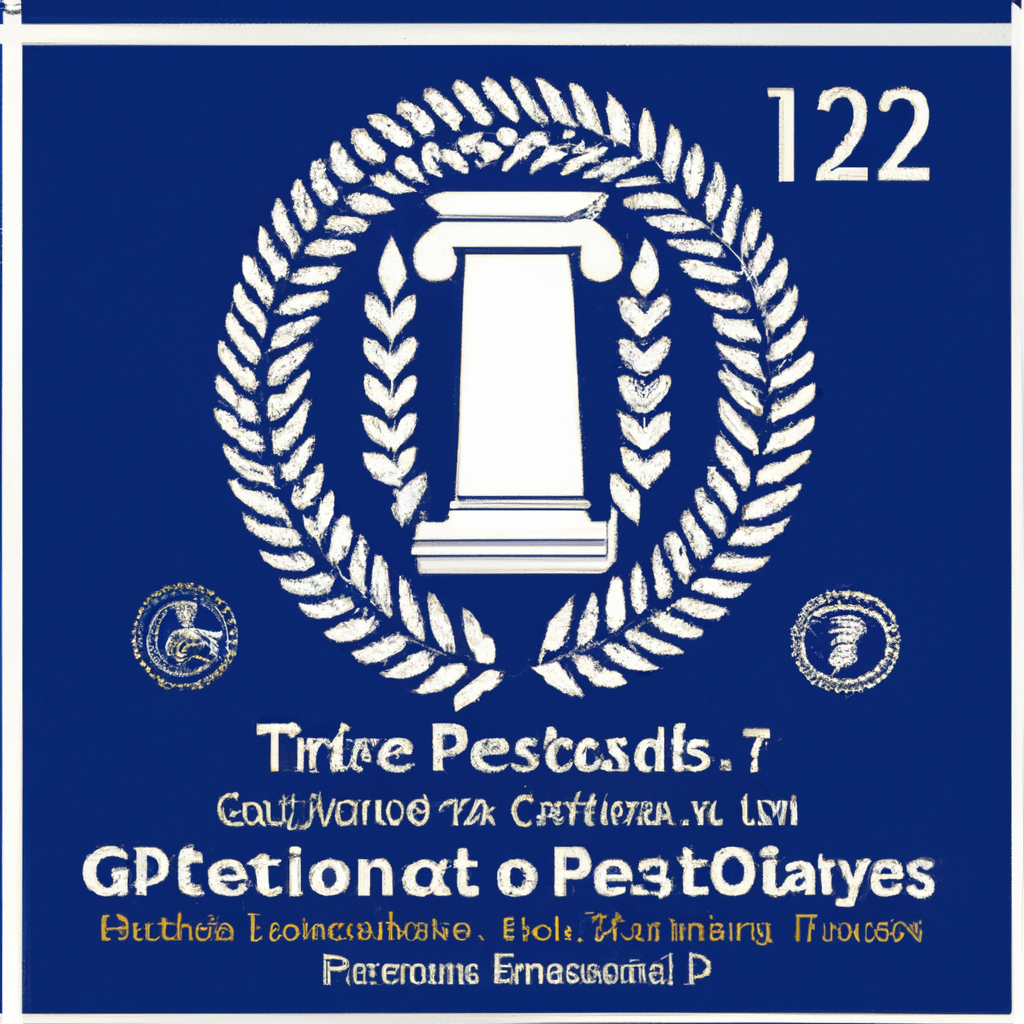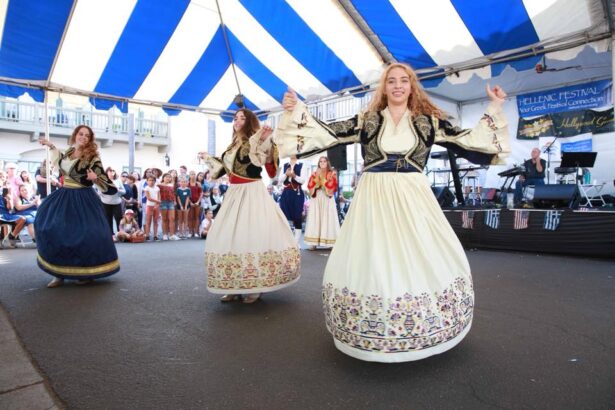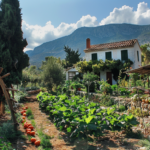Experience a taste of Greece right in your own backyard with Greek Festivals in America: A Celebration of Greek Culture and Traditions. Whether you’re a fan of Greek cuisine, fascinated by the rich history and traditions of Greece, or just looking for a fun and lively cultural event, these festivals offer a delightful immersion into the world of Greece. From traditional dances and live music to mouthwatering Greek delicacies, these festivals are the perfect opportunity to explore and appreciate the vibrant Greek community thriving in the United States. Join in the festivities as you discover the allure of Greek culture and traditions at these exciting events across the country.
St. Basil San Juan Capistrano Greek Festival

History of Greek Festivals in America
Early Greek immigration to America
The history of Greek festivals in America can be traced back to the early Greek immigration wave during the late 19th and early 20th centuries. Many Greeks left their homeland in search of better economic opportunities and a chance at a brighter future. As they settled in various cities across the United States, they brought with them their rich cultural traditions and a desire to preserve their Greek heritage.
Emergence of Greek festivals
As the Greek-American community grew and established roots in their new homeland, the idea of celebrating and showcasing their Greek culture became increasingly important. Greek festivals began to emerge as a way for the community to come together, connect with their cultural roots, and share their traditions with others. These festivals served as a platform for Greek-Americans to proudly display their customs, music, dance, art, and, of course, their delicious cuisine.
Significance of Greek festivals in the Greek-American community
 Greek festivals hold immense significance within the Greek-American community. They serve as a source of pride, unity, and a way to pass down traditions from one generation to the next. These festivals not only create a space for the community to come together and celebrate their culture, but they also provide an opportunity for Greek-Americans to educate others about their heritage. Greek festivals have become a cherished tradition that strengthens the bonds between individuals and fosters a sense of belonging within the community.
Greek festivals hold immense significance within the Greek-American community. They serve as a source of pride, unity, and a way to pass down traditions from one generation to the next. These festivals not only create a space for the community to come together and celebrate their culture, but they also provide an opportunity for Greek-Americans to educate others about their heritage. Greek festivals have become a cherished tradition that strengthens the bonds between individuals and fosters a sense of belonging within the community.
Greek Festivals as Cultural Experiences
Preservation and promotion of Greek culture
One of the primary purposes of Greek festivals in America is to preserve and promote Greek culture. From the moment you step foot into a Greek festival, you are surrounded by the sights, sounds, and flavors of Greece. These festivals offer a unique experience where attendees can immerse themselves in the vibrant Greek culture through various activities, displays, and performances.
Traditional Greek music and dance performances
Greek festivals are known for their lively music and dance performances. Traditional Greek music, featuring instruments such as bouzoukis and baglamas, fills the air, captivating the audience and creating a joyful atmosphere. Attendees can witness the beauty of Greek folk dances, characterized by intricate footwork, colorful costumes, and infectious energy. From the traditional Syrtaki to the fast-paced Zorba dance, these performances showcase the rich tapestry of Greek dance traditions.
Exhibitions of Greek art and crafts
Greek festivals offer a wonderful opportunity to appreciate the artistic talents of the Greek-American community. Attendees can marvel at exhibitions showcasing Greek art, pottery, and other crafts. From intricately designed ceramics to breathtaking paintings and sculptures, these displays provide a glimpse into the rich artistic heritage of Greece. Festival-goers can also purchase handmade crafts and souvenirs, supporting local artisans and bringing a piece of Greek culture back home.
Exploring Greek Cuisine
Wide variety of Greek food options
Greek festivals are a paradise for food enthusiasts, offering a wide variety of mouthwatering Greek dishes to satisfy any palate. From traditional favorites like moussaka and souvlaki to lesser-known delicacies such as dolmades and spanakopita, there is something for everyone to enjoy. The aroma of grilled meats, fresh herbs, and flavorful spices fills the air, enticing festival-goers to indulge in the delectable flavors of Greece.
Highlights of traditional Greek dishes
Greek cuisine is renowned for its use of fresh ingredients, bold flavors, and the Mediterranean diet’s health benefits. At Greek festivals, visitors can savor classic dishes like tzatziki, a refreshing yogurt and cucumber dip, and feta cheese. Traditional Greek salads burst with vibrant colors and flavors, featuring tomatoes, cucumbers, olives, and tangy vinaigrettes. And let’s not forget about the beloved dessert, baklava, with its layers of flaky pastry, nuts, and sweet honey syrup.
Unique flavors and ingredients
Greek cuisine is known for its unique flavors and ingredients that make it stand out among other culinary traditions. Festival-goers can experience the taste of Greece through specialties like gigantes plaki, a hearty dish of baked giant beans in tomato sauce, and loukoumades, fluffy and crispy deep-fried dough balls drizzled with honey and sprinkled with cinnamon. From the distinct taste of fresh olive oil to the fragrant herbs like oregano and thyme, Greek cuisine offers a journey of flavors like no other.

Religious Aspects of Greek Festivals
Importance of religious celebrations
Religion plays a significant role in Greek festivals, reflecting the deep-rooted connection between Greek culture and Greek Orthodox Christianity. Many Greek festivals are held in conjunction with religious celebrations, such as the feast days of patron saints. These religious aspects add a profound spiritual dimension to the festivals, allowing attendees to not only celebrate their cultural heritage but also to honor their faith.
Influence of Greek Orthodox Church
The Greek Orthodox Church has a strong influence on Greek festivals in America, providing a spiritual framework and guidance for the community. The presence of priests, bishops, and religious icons adds a sacred atmosphere to the festivals. Attendees have the opportunity to participate in religious services, receive blessings, and light candles as acts of devotion. The Greek Orthodox Church’s involvement ensures that the festivals remain deeply rooted in religious traditions.
The role of religious processions and ceremonies
Religious processions and ceremonies are a central part of Greek festivals, symbolizing the community’s devotion and honoring the saints. During these processions, icons and relics are carried through the streets, accompanied by prayers and hymns. These solemn yet joyous moments allow festival-goers to connect with their spirituality, express their faith, and pay homage to the traditions passed down through generations.
Festival Activities and Entertainment
Live performances by Greek musicians and dancers
Greek festivals come alive with the infectious energy of live music and dance performances. Musicians take center stage, playing traditional Greek instruments and entertaining the crowd with lively melodies. Festival-goers are encouraged to join in the dancing, embracing the spirit of celebration and community. The dynamic performances create an irresistible urge to move, and soon enough, everyone is joining in the circle dancing, known as the Kalamatianos or Tsamiko.
Greek-themed fashion shows and pageants
Greek festivals often feature fashion shows and pageants that highlight traditional Greek attire. Attendees can witness the beauty of traditional costumes from different regions of Greece, each with its unique style and intricate detailing. Models or pageant contestants proudly showcase the elegance and craftsmanship of these traditional garments, providing a visual feast for the eyes and showcasing the diversity within Greek culture.
Traditional sports competitions and games
Greek festivals bring out the competitive spirit in attendees through various traditional sports competitions and games. From the exhilarating Tug of War to the intense Kefi race, participants get to experience the thrill of ancient Greek sports. These activities not only provide entertainment for all ages but also serve as a way to connect with Greek history and promote a healthy, active lifestyle among festival-goers.
Community Involvement and Support
Volunteerism in organizing Greek festivals
Greek festivals thrive on community involvement and the spirit of volunteerism. Countless hours are dedicated by community members to organize and coordinate these events, from planning the logistics to preparing food and setting up displays. It is through the collective efforts of volunteers that Greek festivals can offer an authentic and immersive experience for attendees. The commitment and dedication of these volunteers exemplify the strong sense of community and pride within the Greek-American population.
Fundraising for local charities and organizations
In addition to showcasing Greek culture, festivals also serve as platforms for giving back to the community. Many Greek festivals engage in fundraising efforts to support local charities and organizations. These initiatives aim to address the needs of the wider community and promote goodwill. By attending Greek festivals, individuals not only have the opportunity to enjoy a vibrant cultural experience but also contribute to meaningful causes.
Fostering a sense of community among Greek-Americans
Greek festivals play a crucial role in fostering a sense of community and belonging among Greek-Americans. These events provide a space where individuals can connect with their cultural roots, creating a shared sense of identity and pride. Festival-goers can bond over their shared experiences, traditions, and memories, creating lasting friendships and strengthening the fabric of the Greek-American community.
The Impact of Greek Festivals on Tourism
Attracting visitors from diverse backgrounds
Greek festivals have a remarkable ability to attract visitors from diverse backgrounds. These festivals offer a unique cultural experience that appeals to people of all ages and interests. Whether it’s the allure of Greek cuisine, the captivating music and dance performances, or the opportunity to explore Greek art and crafts, attendees from various communities are drawn to Greek festivals, resulting in a vibrant tapestry of cultural exchange.
Promoting tourism in local areas
Greek festivals serve as powerful catalysts for promoting tourism in local areas. As these events gain popularity, they draw in a significant number of visitors from neighboring cities and even from different states. This influx of tourists can have a positive impact on local businesses, including hotels, restaurants, and shops. Through their vibrant celebrations, Greek festivals generate interest and curiosity about Greek culture, encouraging more people to visit and explore the local community.
Economic benefits for the hosting communities
The economic benefits of Greek festivals extend beyond tourism. These events often act as significant fundraisers for the hosting communities themselves. The revenue generated from ticket sales, food and merchandise purchases, and sponsorships can contribute to community development initiatives, such as infrastructure improvements, educational programs, and healthcare services. Greek festivals serve as important economic engines that support the overall well-being of the hosting communities.
The Role of Greek Festivals in Education
Educational workshops and cultural demonstrations
Greek festivals offer a wealth of educational opportunities through workshops and cultural demonstrations. Visitors can participate in workshops on Greek language, traditional dances, and cooking, providing a hands-on experience that fosters learning and cultural exchange. Cultural demonstrations, such as pottery-making or weaving, allow attendees to observe and appreciate the skills and techniques passed down through generations. These educational components contribute to the preservation and dissemination of Greek cultural heritage.
Promoting Greek language and history
Greek festivals play an essential role in promoting the Greek language and history within the Greek-American community. Language workshops and classes are often offered to introduce attendees to the Greek language or enhance their existing knowledge. Additionally, historical exhibitions and presentations shed light on Greece’s rich history, mythology, and contributions to various fields. By providing opportunities for attendees to engage with the Greek language and history, festivals become vital platforms for cultural education.
Creating opportunities for cultural exchange
Greek festivals create valuable opportunities for cultural exchange, not only within the Greek-American community but also with the broader society. Festival-goers from different cultural backgrounds can learn about Greek customs, traditions, and values firsthand. Through conversations with Greek-Americans and interactions with the various elements of the festival, attendees gain a deeper understanding and appreciation of Greek culture. These moments of cultural exchange foster mutual respect, build bridges between communities, and nurture a more inclusive society.
Evolution of Greek Festivals in America
Changes in festival formats over time
Greek festivals in America have evolved over time, adapting to changing circumstances and the needs of the community. While traditional elements such as music, dance, and food remain at the core, festivals have embraced innovative approaches to keep up with the times. The incorporation of modern technologies, interactive displays, and social media engagement has enhanced the overall festival experience, attracting a wider audience and keeping the celebrations relevant.
Incorporation of modern elements and trends
Greek festivals have successfully incorporated modern elements and trends to appeal to younger generations. Festivals now feature contemporary Greek music acts alongside traditional performances, attracting a broader demographic. Themes and decorations reflect current design trends, creating visually stunning settings that captivate attendees. By embracing modern elements while honoring tradition, Greek festivals continue to evolve and remain relevant in a rapidly changing world.
Balancing tradition with innovation
The evolution of Greek festivals rests on striking a delicate balance between tradition and innovation. While it is crucial to preserve the authenticity and integrity of Greek culture, festivals also need to adapt to the evolving interests and preferences of the attendees. By carefully integrating new ideas and approaches, festivals can offer a dynamic experience that is both rooted in tradition and relevant to contemporary audiences. This delicate balance ensures that Greek festivals continue to thrive and remain cherished events for generations to come.
Future Outlook for Greek Festivals
Challenges and opportunities for growth
Greek festivals face both challenges and opportunities as they look to the future. One of the key challenges is attracting and engaging younger generations to ensure the longevity of these events. To address this, festivals can explore innovative programming, interactive experiences, and digital platforms to better connect with younger audiences. Additionally, collaborations with other cultural events and initiatives can expand the reach and impact of Greek festivals, fostering cross-cultural dialogue and exchanging ideas.
Expanding awareness and participation
Raising awareness about Greek festivals and promoting participation can be achieved through strategic marketing and community partnerships. Leveraging social media, online platforms, and traditional marketing channels can reach a wider audience and attract newcomers to the festivities. Collaborating with local schools, colleges, and cultural organizations can also foster greater participation by integrating Greek festivals into educational curricula and community engagement initiatives.
Ensuring sustainability for future generations
To ensure the sustainability of Greek festivals for future generations, there is a need for ongoing support from the community and stakeholders. Continued volunteerism, fundraising efforts, and sponsorship support are essential to organize and sustain these events. Encouraging active participation and leadership roles among younger community members can also cultivate a sense of ownership and responsibility for the preservation of Greek festivals. By working together, the Greek-American community can ensure that these vibrant celebrations continue to thrive and evolve, passing on the torch of Greek culture to future generations.
Greek festivals in America are an invaluable celebration of Greek culture and traditions. These lively events bring communities together, preserve cultural heritage, and promote an understanding and appreciation of Greece’s rich history. Through their food, music, dance, and art, Greek festivals provide an immersive cultural experience that leaves a lasting impression. As they continue to evolve and adapt, Greek festivals offer a glimpse into the vibrant tapestry of Greek-American life while ensuring the preservation and promotion of Greek culture for generations to come.
Exploring Greek Festivals: A Culinary Journey
Dive into the vibrant world of Greek festivals and immerse yourself in the celebration of Greek culture, cuisine, and traditions. This culinary exploration, sponsored by Digital Heroes Caffe and Financial Navagator 360, invites you to experience the joyous spirit of Greek festivals.
Greek Mezes Recipe: A Prelude to Festivity
Before we embark on our festival journey, indulge in the flavors of Greece with Greek Mezes Recipe. These traditional Greek appetizers set the stage for the culinary delights you’ll encounter at Greek festivals.
Dolmades: A Festive Delight
Discover the art of crafting Dolmades, the cherished Greek stuffed vine leaves. These delectable morsels often take center stage at Greek celebrations, offering a taste of tradition.
YouTube Chef on a Bike: Festive Cooking at Your Fingertips
Join the festivities with Chef on a Bike, your guide to Greek culinary adventures. Explore festival-inspired recipes and cooking sessions led by passionate Greek chefs, bringing the joy of Greek festivals to your kitchen.
Anna-Maria Barouh: A Festival Enthusiast
Learn from the insights of Anna-Maria Barouh at Anna-Maria Barouh. Her deep appreciation for Greek festivals adds depth to our exploration of these joyous gatherings.
Greek festivals are a reflection of the country’s rich history and lively spirit. From the music and dancing to the mouthwatering dishes served, these celebrations offer a window into Greek culture. Join us as we journey through the world of Greek festivals and savor the festive flavors that make them truly special.
Here are some Greek festivals in California with their respective links:
-
Greek Festival of San Jose
- Greek Festival of San Jose
- Location: San Jose, California
-
Sacramento Greek Festival
- Sacramento Greek Festival
- Location: Sacramento, California
-
Long Beach Greek Festival
- Long Beach Greek Festival
- Location: Long Beach, California
-
Los Angeles Greek Festival
- Los Angeles Greek Festival
- Location: Los Angeles, California
-
Oakland Greek Festival
- Oakland Greek Festival
- Location: Oakland, California
Here are some Greek festivals in Australia with their respective links:
- Greek Festival of Sydney
- Greek Festival of Sydney
- Location: Sydney, New South Wales
- Greek Glenti Festival – Darwin
- Greek Glenti Festival – Darwin
- Location: Darwin, Northern Territory
- Lonsdale Street Greek Festival – Melbourne
- Lonsdale Street Greek Festival – Melbourne
- Location: Melbourne, Victoria
- Greek Festival of South Australia
- Greek Festival of South Australia
- Location: Adelaide, South Australia
- Greek Orthodox Community of Newcastle and Hunter Region – Festival
- Greek Orthodox Community of Newcastle and Hunter Region – Festival
- Location: Newcastle, New South Wales
These festivals celebrate Greek culture, traditions, music, dance, and, of course, delicious Greek cuisine. Make sure to visit their websites for more information on event dates and activities. Enjoy the Greek festivities in Australia!



















